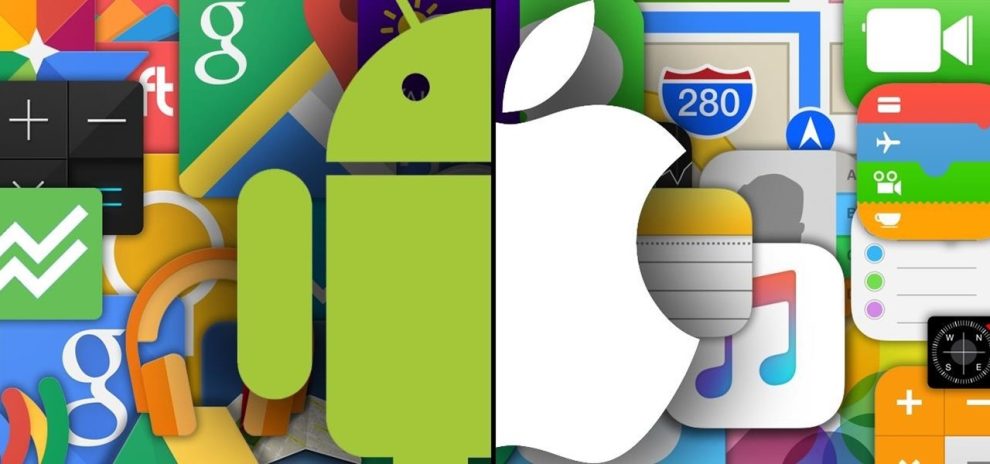The Android vs iOS debate continues to rage on. While Apple’s ecosystem boasts its fair share of exclusive apps, Android users have long enjoyed a level of customization and utility that leaves many iOS devotees green with envy. A recent analysis has uncovered a treasure trove of Android-exclusive apps that are reshaping how users interact with their devices, leaving iPhone owners to wonder what they’re missing out on. From AI-powered recording to advanced battery management and custom launchers, these apps showcase the unique strengths of the Android platform and highlight the growing divide in mobile experiences.
Leading the charge in Android’s arsenal of exclusive apps is Google’s Pixel Recorder. This powerful utility leverages cutting-edge AI technology to transform how users capture and interact with audio content. With features like real-time transcription, speaker recognition, and AI-driven summarization, Pixel Recorder is a game-changer for students, journalists, and professionals alike.
Dr. Emily Chen, a digital productivity expert, explains the app’s significance: “Pixel Recorder isn’t just about recording audio; it’s about making that audio instantly actionable and searchable. The AI summarization feature alone can save hours of work for busy professionals.”
While currently limited to Pixel devices, the app’s capabilities have left many in the iOS community clamoring for a comparable solution. Apple’s recent forays into on-device AI suggest that a similar tool may be in development, but for now, iPhone users are left wanting.
Power to the People: AccuBattery’s Deep Dive into Device Health

In an age where smartphone longevity is increasingly important, AccuBattery stands out as a beacon of empowerment for Android users. This comprehensive battery monitoring tool provides detailed insights into battery health, charging cycles, and app-specific power consumption.
John Smith, a mobile technology analyst, highlights the app’s importance: “AccuBattery gives users the kind of detailed battery information that manufacturers often obscure. It’s not just about seeing your current charge; it’s about understanding and extending your device’s lifespan.”
The absence of a direct equivalent on iOS is particularly felt by users of older iPhone models, who lack official tools to gauge their device’s battery health accurately. While Apple provides basic battery health information, it falls short of the granular data and predictive features offered by AccuBattery.
Taming the Notification Beast: Buzzkill’s Smart Alerts
In the constant battle against notification overload, Buzzkill emerges as a powerful ally for Android users. This innovative app allows for unprecedented control over how and when notifications are delivered, using customizable rules and triggers to streamline the user’s digital experience.
Sarah Lee, a UX designer specializing in mobile interfaces, explains: “Buzzkill represents a paradigm shift in how we interact with our devices. By giving users fine-grained control over their notifications, it transforms the smartphone from a constant distraction into a truly personal assistant.”
While iOS users can create some notification rules using Apple’s Shortcuts app, the process is often cumbersome and lacks the intuitive interface and pre-built recipes that make Buzzkill so accessible.
The Audiophile’s Delight: Poweramp’s Superior Sound
For music enthusiasts who prefer local files to streaming services, Poweramp stands as a testament to Android’s audio capabilities. This feature-rich music player offers advanced equalizer settings, support for high-resolution audio formats, and a highly customizable interface.
Audio engineer Mike Johnson praises the app: “Poweramp isn’t just another music player; it’s a complete audio solution. The level of control it offers over sound output is unparalleled in the mobile space.”
While iOS boasts several capable music players, none match Poweramp’s combination of features, customization options, and audio fidelity. This gap is particularly noticeable for users with large, curated music libraries who demand the highest quality playback.
Web Pages as Apps: Hermit’s Innovative Approach
Blurring the lines between web and native apps, Hermit offers Android users a unique way to interact with their favorite websites. By creating “lite apps” from web pages, Hermit provides a more focused and efficient browsing experience.
Tech blogger Lisa Chen explains the app’s appeal: “Hermit is perfect for those who want the convenience of an app without the bloat. It’s especially useful for accessing sites that don’t have official apps or for creating multiple instances of the same service.”
The concept of web apps isn’t new to iOS, but the level of customization and integration offered by Hermit remains unmatched on Apple’s platform. For users who value a streamlined digital experience, this absence is keenly felt.
Reddit Reimagined: RedReader’s Minimalist Approach
In the wake of Reddit’s API changes, which led to the shutdown of many popular third-party clients, RedReader stands as a beacon of hope for Android users. This open-source app offers a clean, efficient interface for browsing Reddit, focusing on functionality over frills.
Reddit moderator and power user Alex Thompson shares his thoughts: “RedReader is a breath of fresh air in the current Reddit app landscape. Its no-nonsense approach and reliability make it an essential tool for serious Reddit users.”
While iOS users have access to some third-party Reddit clients, the robust and community-driven development of RedReader remains uniquely Android. Its survival amidst Reddit’s policy changes highlights the resilience of the Android development community.
Gaming Without Boundaries: Emulators on Android

The world of retro gaming finds a welcoming home on Android, with emulators like RetroArch and PPSSPP offering unparalleled access to classic games. These apps leverage Android’s open nature to provide experiences that are either limited or non-existent on iOS.
Gaming historian Dr. Rachel Wong explains: “Android’s emulator scene isn’t just about nostalgia; it’s about preserving gaming history. The ability to easily access and play classic games on modern devices is crucial for understanding the evolution of the medium.
While iOS has seen some relaxation in policies regarding emulators, the variety and capabilities of those available on Android remain unmatched. For gaming enthusiasts, this represents one of the most significant gaps between the two platforms.
The Ultimate Automation: Tasker’s Endless Possibilities
Tasker stands as perhaps the most powerful example of Android’s customization potential. This automation app allows users to create complex scripts and routines, effectively turning their smartphone into a programmable computer.
Software developer Tom Baker shares his experience: “Tasker is like having a personal coding assistant in your pocket. The possibilities are literally endless – from simple tasks like automatically silencing your phone in certain locations to complex routines that integrate multiple apps and services.
While Apple’s Shortcuts app offers some automation capabilities, it falls short of Tasker’s depth and flexibility. The absence of a true Tasker equivalent on iOS remains a significant draw for power users considering a switch to Android.
App Management Made Easy: ML Manager’s Backup Solution
In an era where app availability can be fleeting, ML Manager offers Android users a way to safeguard their favorite applications. By allowing users to extract and backup APK files, this tool provides a level of control over software that iOS users can only dream of.
Cybersecurity expert James Lee explains the significance: “ML Manager isn’t just about backing up apps; it’s about digital autonomy. Being able to preserve and potentially share app versions gives users a safety net in an increasingly volatile digital marketplace.”
The concept of app extraction and backup remains foreign to the iOS ecosystem, highlighting a fundamental difference in philosophy between the two platforms regarding user control and software ownership.
The Customization Crown: Android Launchers
Perhaps the most visually striking difference between Android and iOS lies in the availability of custom launchers. Apps like Nova Launcher, Kvaesitso, and Niagara offer Android users the ability to completely overhaul their device’s interface, providing levels of personalization that iOS users can scarcely imagine.
UX researcher Maria Garcia explains the appeal: “Launchers aren’t just about aesthetics; they’re about creating a phone interface that truly works for you. This level of customization can significantly impact productivity and user satisfaction.”
The absence of custom launchers on iOS represents one of the most fundamental differences between the two platforms. While Apple has introduced more customization options in recent updates, the ability to completely reshape the home screen and app drawer remains a uniquely Android feature.
As this exploration of Android-exclusive apps demonstrates, the mobile app landscape remains far from homogeneous. While iOS users enjoy their own set of exclusive features and applications, the unique capabilities offered by these Android apps highlight the ongoing divergence in mobile experiences.
However, the mobile world is ever-changing. As Apple continues to expand iOS’s capabilities and Google refines Android’s features, the gap between the two platforms may narrow in some areas while widening in others. What remains clear is that for the foreseeable future, Android’s open nature and customization potential will continue to foster innovative apps that push the boundaries of what a smartphone can do.
For iOS users looking longingly at these Android exclusives, the future may hold promise. As consumer demand grows and technology evolves, we may see similar functionalities appear on iOS, either through Apple’s own development or through policy changes that allow for more diverse app experiences.
In the meantime, these ten apps serve as a powerful reminder of Android’s unique strengths and the vibrant developer community that continues to innovate within its ecosystem. They stand as a testament to the platform’s flexibility and potential, offering a glimpse into a world of mobile computing where the only limit is the user’s imagination.
















Add Comment